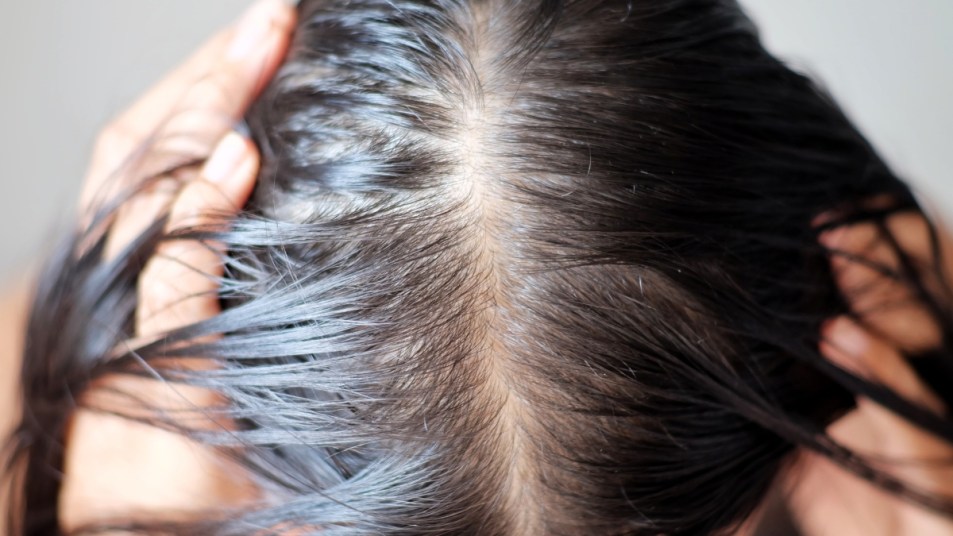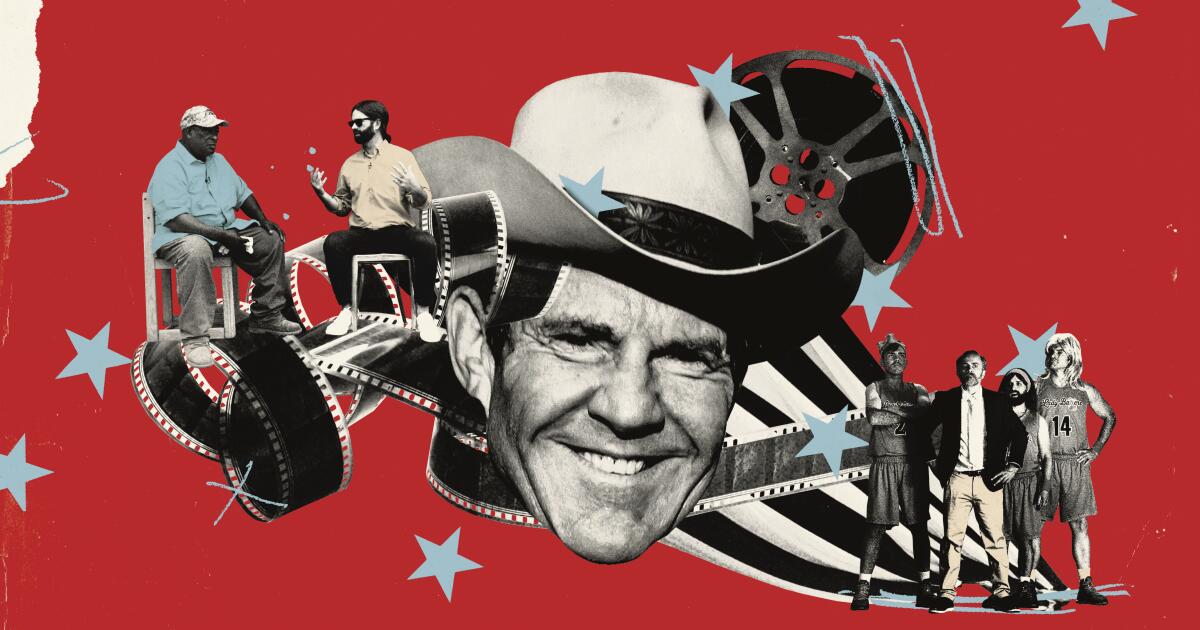Health
Eating Too Much of This Type of Food May Cause Hair Loss

Most of us are already familiar with the idea of healthy and unhealthy fats. Healthy fats such as avocado, olive oil, and salmon are linked to numerous health benefits, from better heart health to a stronger immune system. Unhealthy fats, including fat from red meat and fried foods, are associated with an increased risk of heart disease and certain cancers. Now, research suggests that a diet high in unhealthy fats may also be linked to hair loss.
In a recent study published by Nature, a team of scientists from the Tokyo Medical and Dental University decided to investigate the effects of a high-fat diet on the body. They used adult mice to conduct their experiment and fed some of them a high-fat diet. Other mice received a standard diet. Since previous research suggests that overweight people are more likely to have thinning hair and bald spots, the team theorized that mice on a high-fat diet would experience more hair loss.
The researchers were right. In just four days, the mice on the high-fat diet developed bald patches. Older mice suffered from this effect the most, which implies that older people on a high-fat diet are the most likely to experience hair loss.
The Scientific Connection Between Fatty Foods and Hair Loss
According to the study authors, fatty foods can deplete hair-follicle stem cells, or long-lived cells in hair follicles. During a normal hair growth cycle, hair-follicle stem cells activate and replenish themselves to create a healthy root, resulting in hair growth. In an abnormal cycle, these stem cells fail to activate. The researchers concluded that a high-fat diet could contribute to an abnormal cycle by introducing inflammatory molecules into the body. These molecules cause oxidative stress and block the regeneration of hair follicles, resulting in smaller follicles and faster hair loss.
How to Prevent Further Hair Loss
If you’ve been experiencing more hair loss than usual, you’re not alone. While many people view thinning and baldness as problems that affect men, an estimated 50 percent of women will experience noticeable hair loss in their lifetime.
Fortunately, hair loss caused by a high-fat diet is preventable. A study published in Archives of Dermatological Research found that a Mediterranean diet could decrease the risk of androgenetic alopecia. Androgenetic alopecia is the type of hair loss that typically begins above both temples, causing the hair line to recede. While this condition is not reversible, consuming plenty of fresh herbs and fresh vegetables could slow down its onset.
Another article published in the Dermatology Practical & Conceptual Journal stated that nutritional deficiencies may impact hair structure and hair growth. So, what can you do to slow down hair loss? You can start by cutting down on baked goods, cured meats, cheese, fried foods, and other foods that are high in saturated fat. Consuming whole foods rich in vitamins and minerals could prevent you from developing a vitamin or mineral deficiency that may contribute to hair loss. In addition, eliminating stressors in your life may help you see new hair growth.
It’s important to understand that thinning hair is complicated and involves many different factors. But by eliminating one factor – fatty foods – you may slow down the rate at which you lose hair.
ARNICARE FOR PAIN AND BRUISES!
Powered by Arnica montana, Arnicare® is designed to treat muscle pain, swelling, and discoloration from bruising. The unscented gel cools on contact and absorbs quickly into your skin, leaving no sticky or greasy residue, and provides you with the relief you seek. Learn more at Arnicare.com.

Health
Semaglutide Pills and Injections Vs. Drops: Experts Weigh In | Woman's World

Sign Up
Create a free account to access exclusive content, play games, solve puzzles, test your pop-culture knowledge and receive special offers.
Already have an account? Login
Use left and right arrow keys to navigate between menu items.
Use escape to exit the menu.
Health
Jennifer Hudson Lost 80-Lbs Without Depriving Herself—Learn Her Secrets

Sign Up
Create a free account to access exclusive content, play games, solve puzzles, test your pop-culture knowledge and receive special offers.
Already have an account? Login
Use left and right arrow keys to navigate between menu items.
Use escape to exit the menu.
Health
Kennedy’s Plan for the Drug Crisis: A Network of ‘Healing Farms’

Though Mr. Kennedy’s embrace of recovery farms may be novel, the concept stretches back almost a century. In 1935, the government opened the United States Narcotic Farm in Lexington, Ky., to research and treat addiction. Over the years, residents included Chet Baker and William S. Burroughs (who portrayed the institution in his novel, “Junkie: Confessions of an Unredeemed Drug Addict”). The program had high relapse rates and was tainted by drug experiments on human subjects. By 1975, as local treatment centers began to proliferate around the country, the program closed.
In America, therapeutic communities for addiction treatment became popular in the 1960s and ’70s. Some, like Synanon, became notorious for cultlike, abusive environments. There are now perhaps 3,000 worldwide, researchers estimate, including one that Mr. Kennedy has also praised — San Patrignano, an Italian program whose centerpiece is a highly regarded bakery, staffed by residents.
“If we do go down the road of large government-funded therapeutic communities, I’d want to see some oversight to ensure they live up to modern standards,” said Dr. Sabet, who is now president of the Foundation for Drug Policy Solutions. “We should get rid of the false dichotomy, too, between these approaches and medications, since we know they can work together for some people.”
Should Mr. Kennedy be confirmed, his authority to establish healing farms would be uncertain. Building federal treatment farms in “depressed rural areas,” as he said in his documentary, presumably on public land, would hit political and legal roadblocks. Fully legalizing and taxing cannabis to pay for the farms would require congressional action.
In the concluding moments of the documentary, Mr. Kennedy invoked Carl Jung, the Swiss psychiatrist whose views on spirituality influenced Alcoholics Anonymous. Dr. Jung, he said, felt that “people who believed in God got better faster and that their recovery was more durable and enduring than people who didn’t.”
-
/cdn.vox-cdn.com/uploads/chorus_asset/file/25822586/STK169_ZUCKERBERG_MAGA_STKS491_CVIRGINIA_A.jpg)
/cdn.vox-cdn.com/uploads/chorus_asset/file/25822586/STK169_ZUCKERBERG_MAGA_STKS491_CVIRGINIA_A.jpg) Technology1 week ago
Technology1 week agoMeta is highlighting a splintering global approach to online speech
-

 Science1 week ago
Science1 week agoMetro will offer free rides in L.A. through Sunday due to fires
-
/cdn.vox-cdn.com/uploads/chorus_asset/file/23935558/acastro_STK103__01.jpg)
/cdn.vox-cdn.com/uploads/chorus_asset/file/23935558/acastro_STK103__01.jpg) Technology1 week ago
Technology1 week agoAmazon Prime will shut down its clothing try-on program
-

 News1 week ago
News1 week agoMapping the Damage From the Palisades Fire
-
/cdn.vox-cdn.com/uploads/chorus_asset/file/25826211/lorealcellbioprint.jpg)
/cdn.vox-cdn.com/uploads/chorus_asset/file/25826211/lorealcellbioprint.jpg) Technology7 days ago
Technology7 days agoL’Oréal’s new skincare gadget told me I should try retinol
-
/cdn.vox-cdn.com/uploads/chorus_asset/file/25832751/2192581677.jpg)
/cdn.vox-cdn.com/uploads/chorus_asset/file/25832751/2192581677.jpg) Technology4 days ago
Technology4 days agoSuper Bowl LIX will stream for free on Tubi
-

 Business5 days ago
Business5 days agoWhy TikTok Users Are Downloading ‘Red Note,’ the Chinese App
-
/cdn.vox-cdn.com/uploads/chorus_asset/file/25835602/Switch_DonkeyKongCountryReturnsHD_scrn_19.png)
/cdn.vox-cdn.com/uploads/chorus_asset/file/25835602/Switch_DonkeyKongCountryReturnsHD_scrn_19.png) Technology2 days ago
Technology2 days agoNintendo omits original Donkey Kong Country Returns team from the remaster’s credits














